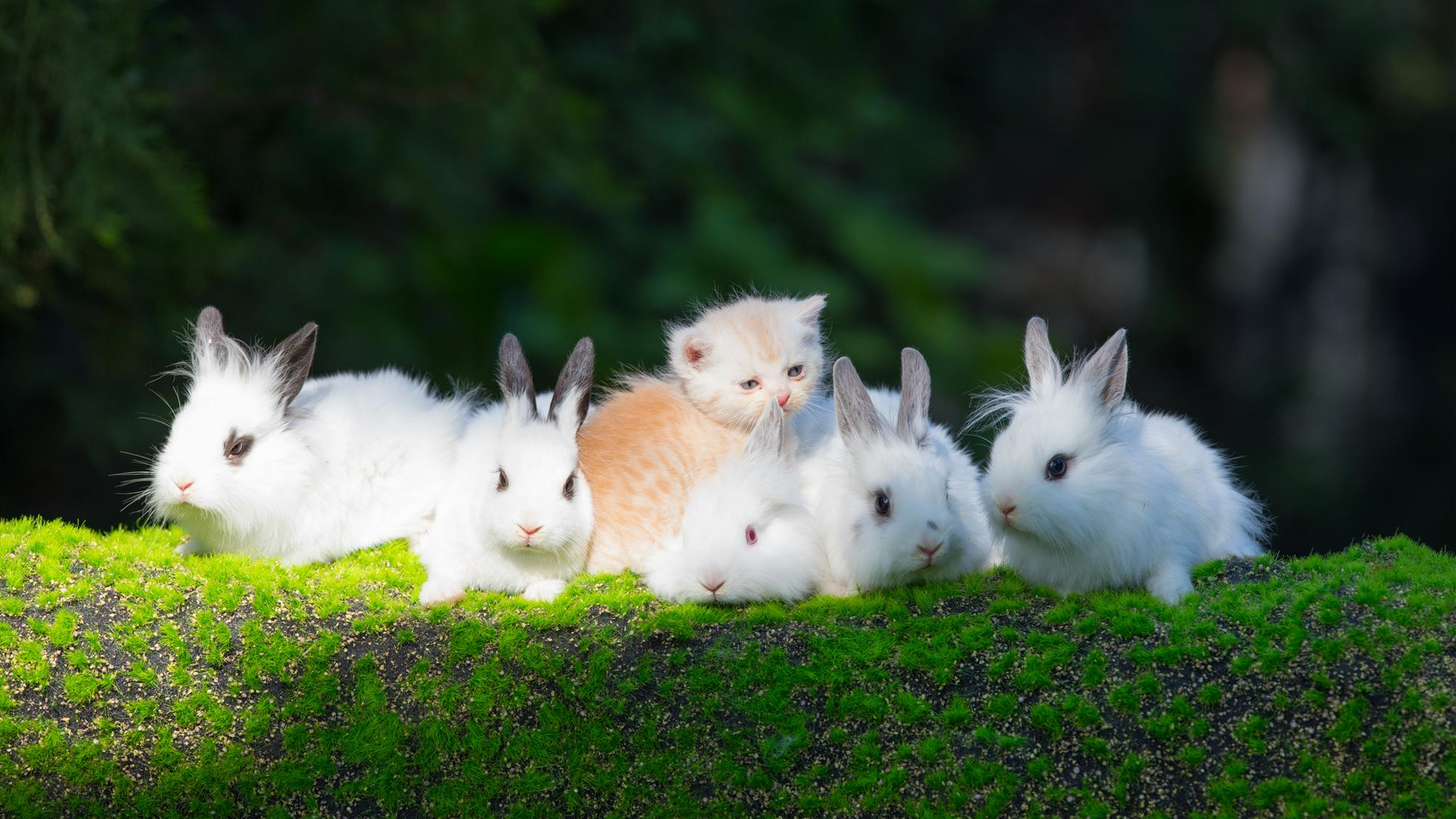The idea of having a pet fills many people with excitement, but choosing the right one for an indoor environment can be a bit trickier. Whether you’re a first-time pet owner or simply looking for a companion that thrives inside, it’s important to select a pet that matches your lifestyle, living space, and level of commitment. Some pets are more suited to apartment living, while others prefer large backyards. Fortunately, many animals are perfectly content in indoor settings, offering a variety of benefits and joy for their owners.
If you’re asking, “What pet is best for indoors?” the answer depends on factors like space, activity level, and care requirements. From playful puppies to low-maintenance reptiles, let’s explore a variety of indoor-friendly pets that might just be the perfect fit for your home!
1. Cats: Independent, Cozy Companions
For many people, cats are the quintessential indoor pets. Their independent nature, low maintenance, and ability to adapt to various living environments make them a top choice for indoor companions. Unlike dogs, cats don’t need to be walked or taken outside for exercise (though they may love some playtime), which makes them perfect for apartment or house living.
Why Cats are Great Indoors:
- Self-sufficient: Cats are happy to entertain themselves while you’re at work or out, and they generally do not require constant attention.
- Minimal exercise needs: While cats love a good game of chase or pouncing, they don’t need daily walks like dogs.
- Low maintenance: Cats groom themselves, and if you provide them with a litter box and fresh food, they’re good to go.
- Playful and affectionate: Despite their independent nature, cats often form deep bonds with their owners and enjoy snuggling on the couch or curling up next to you.
Just be mindful of potential scratching (which can be addressed with scratching posts) and shedding (which can be managed with regular brushing). If you’re considering a cat, make sure to provide plenty of vertical space with cat trees or shelves for climbing, as they love perching up high!
2. Small Dogs: Energetic Yet Adaptable
While larger dogs are typically better suited for homes with yards, many smaller dog breeds thrive in indoor environments. These pups are often affectionate, loyal, and enjoy being around their owners. They may have lower exercise needs compared to larger dogs, making them an excellent choice for apartment dwellers.
Best Small Dog Breeds for Indoor Living:
- French Bulldog: Known for their relaxed demeanor and low grooming needs, French Bulldogs are small but sturdy companions that don’t require a lot of space to feel comfortable.
- Cavalier King Charles Spaniel: This sweet-natured breed is calm, easy to train, and happy to spend most of their time lounging indoors.
- Chihuahua: Despite their tiny size, Chihuahuas have big personalities and are typically happy to curl up on the couch or play indoors.
- Shih Tzu: With their affectionate nature and long, silky coat (that requires grooming), Shih Tzus are perfect indoor companions who thrive on human interaction.
Though small dogs can be indoor-friendly, they still need mental stimulation and daily walks to maintain their health and happiness. If you’re considering a small dog, make sure you can provide them with a good mix of indoor playtime and outdoor excursions.
3. Fish: Serene, Low-Maintenance Pets
If you love the idea of having a pet but don’t want to worry about daily walks, shedding, or litter boxes, a fish might be the ideal pet for you. Fish tanks can serve as both a living decor piece and a source of entertainment as you watch your colorful companions glide through the water.
Why Fish Make Great Indoor Pets:
- Low-maintenance: Fish require relatively little daily interaction, making them great for busy individuals or families.
- Aesthetic appeal: A well-maintained aquarium adds a touch of beauty and tranquility to any room, offering a calm, peaceful environment.
- Variety: There are many types of fish to choose from, including freshwater species like bettas, goldfish, and guppies, or saltwater fish for more experienced aquarium owners.
While fish are low-maintenance, they do require careful attention to water conditions, temperature, and feeding schedules. Setting up a properly balanced aquarium is key to maintaining the health of your fish.
4. Birds: Charming and Social
Birds, particularly smaller species like parakeets, cockatiels, and canaries, can make wonderful indoor pets. Birds are known for their intelligence, social nature, and ability to form bonds with their owners. They love interaction, and many species enjoy mimicking sounds, songs, or even human speech.
Why Birds are Great Indoors:
- Compact and low space requirements: Many birds thrive in small cages or birdhouses, so they’re a great option for people with limited space.
- Interactive and social: Birds are highly social creatures that love attention and affection. They can enjoy cuddling, playing with toys, or talking to their owners.
- Bright colors and personality: Birds like parakeets, lovebirds, or cockatoos bring energy and color to your home, and many can be trained to do tricks or learn new phrases.
Birds do require regular care, including cleaning their cages, providing a balanced diet, and offering mental stimulation through toys and social interaction. If you’re considering a bird, make sure you have the time and patience to care for their social needs.
5. Rabbits: Soft, Playful, and Quiet
If you’re looking for a pet that’s gentle, quiet, and relatively low-maintenance, a rabbit could be an excellent indoor companion. While they do require a bit more care than a fish, they don’t need as much attention as a dog or cat. Rabbits can be trained to use a litter box and often enjoy lounging on soft surfaces like blankets or beds.
Why Rabbits Make Great Indoor Pets:
- Clean and quiet: Rabbits are relatively quiet pets that enjoy spending their time in cozy corners or hopping around in a safe, enclosed area.
- Social and affectionate: Rabbits can be affectionate and enjoy bonding with their owners. They love to hop around and explore but are generally content to sit on your lap for pets and snuggles.
- Easy to litter train: Rabbits are surprisingly easy to litter train, making them relatively low-maintenance compared to other pets.
To keep your rabbit happy indoors, you’ll need to provide them with plenty of space to hop around, chew toys, and fresh hay. They also need a safe environment to roam free, as their inquisitive nature can lead them to chew on furniture or cords.
6. Reptiles: Unique and Low-Maintenance
For those seeking an exotic pet, reptiles can be fascinating indoor companions. Species like turtles, snakes, and geckos require minimal interaction, making them ideal for owners who want a pet that’s visually interesting but low-maintenance. Reptiles do have specific habitat requirements, such as heat lamps and humidity control, but they can be rewarding pets for those who enjoy observing them.
Popular Reptiles for Indoor Living:
- Leopard Geckos: These small, colorful reptiles are low-maintenance, friendly, and enjoy a terrarium environment with minimal care.
- Bearded Dragons: A popular pet for reptile enthusiasts, bearded dragons are easy to care for, interactive, and can live comfortably in indoor habitats.
- Turtles: If you have a well-maintained tank, turtles are relatively easy to care for and can live for many years.
- Snakes: While snakes like ball pythons and corn snakes are low-maintenance, they require a secure enclosure and specific temperature conditions.
Reptiles can be fascinating to observe, but they do require specialized care, such as proper lighting and temperature regulation. They are perfect for pet owners who appreciate a more hands-off approach.
7. Hamsters and Guinea Pigs: Small, Fun, and Adorable
If you want a pet that is small, cute, and relatively low-maintenance, a hamster or guinea pig may be the right choice for you. These tiny creatures are easy to care for, require minimal space, and are fun to watch as they run on wheels, burrow, and interact with their environment.
Why Hamsters and Guinea Pigs Make Great Indoor Pets:
- Compact and easy to care for: Hamsters and guinea pigs don’t need much space, making them ideal for small apartments or homes.
- Interactive and playful: Both species enjoy a good play session, whether running in a hamster wheel or exploring a guinea pig playpen.
- Low-maintenance: With simple diets, clean cages, and the occasional playtime, these pets are relatively easy to take care of.
Guinea pigs tend to be more social than hamsters, and they enjoy interaction with humans or other guinea pigs. Hamsters are solitary and prefer to live alone in their cages, while guinea pigs enjoy the company of others.
Conclusion: The Best Indoor Pet for You
Choosing the right pet for your indoor space depends on your lifestyle, the amount of time you can dedicate to care, and the type of companionship you’re seeking. Whether you’re drawn to the independent charm of a cat, the playful energy of a small dog, or the peaceful serenity of fish, there are plenty of indoor-friendly pets that can fit into your home and life.
Consider factors such as space, time for care, and personal preferences when choosing a pet. Each pet has its unique traits, and the best





